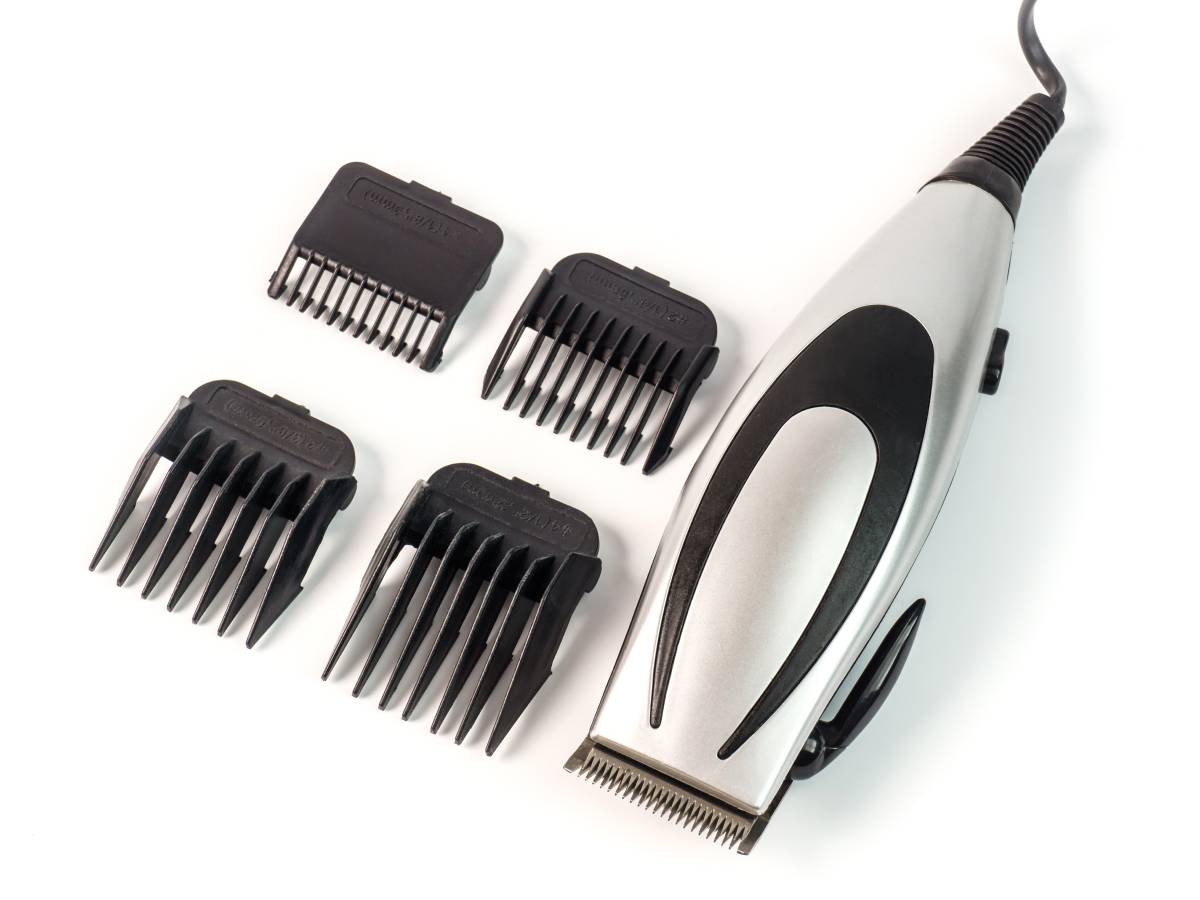If you’ve ever been inside a barber shop or hair salon that offers clipper cuts, you’ve probably heard haircut numbers thrown around. But what, exactly, do those numbers mean?
Let me first say that you don’t need to be proficient in haircut numbers to request the perfect cut. A great barber will be able to figure out what you want without the need for such technical terms. At the same time, being familiar with these numbers can be helpful.
I spoke with Jon Franklyn, barber shop manager at Smooth Operators Male Grooming in the UK, about haircut numbers. First, I asked why he thinks people feel so much pressure to know their numbers.
He told me, “It makes it easier to explain to the barber what you want done to your hair, also you will know yourself how short you want it. We don’t expect everyone to know what grade they want, some will say ‘I want it short but show no skin.’
On this occasion we will look at someone else in the shop and say what grade they are having. If they don’t like the length then we will suggest a longer length. Personally I will go a bit longer and show them after I have cut some.
If it’s not short enough then I will drop a grade until it’s at the length they like. Then I tell them what grade it is so they remember for the next haircut.” Basically, it’s not a huge issue if you don’t know your numbers. But it never hurts to learn.
I’ve compiled all the info you need about haircut numbers and clipper sizes in this comprehensive guide! I’ll be covering:
- What haircut numbers are. Haircut numbers refer to clipper guard sizes for electric clippers.
- Why clipper sizes matter. Different clipper sizes result in different lengths of hair removed. And sizing/numbering isn’t always consistent across brands.
- Who is best suited for different haircut numbers. Hair type, thickness, and other factors affect which will best suit you.
- How to ask your barber or stylist for the perfect haircut. Even if you can’t remember haircut numbers, I’ve got ways to communicate with your stylist.
- Answers to some of the most commonly asked questions about haircut numbers and clipper sizes. This includes questions/answers about specific haircut numbers.
What Are Haircut Numbers?
Haircut numbers refer to the attachments you’ll find on electric hair clippers. Most clippers come with eight different guards with numbers ranging from 1-8.
When a person asks for a number 1 haircut, the barber will use the number 1 attachment on the clipper. Different clipper guards will cut hair to different lengths. Those specific lengths corresponding to the number on the attachment.
Haircut Number vs. Clipper Guard Size
This chart shows haircut numbers and their corresponding clipper guard sizes. I’ve included both inches and millimeters.
| Haircut Number | Clipper Guard/Hair Length (inches) | Clipper Guard/Hair Length (millimeters) |
| Number 1 | 1/8″ | 3mm |
| Number 2 | 1/4″ | 6mm |
| Number 3 | 3/8″ | 10mm |
| Number 4 | 1/2″ | 13mm |
| Number 5 | 5/8″ | 16mm |
| Number 6 | 3/4″ | 19mm |
| Number 7 | 7/8″ | 22mm |
| Number 8 | 1″ | 25mm |
Standard Hair Clipper Sizes
Most hair clipper sets come with eight attachments, though some may come with more. With each different clipper attachment, the length of the hair after it’s cut increases by 1/8″.
For example, a number 1 haircut/clipper guard will cut hair to 1/8″. A number 2 haircut/clipper guard will cut hair to 2/8″ (or 1/4″).
The length of the hair increases with each subsequent guard. So, a number 8 clipper guard results in hair that’s one inch long.
Hair Clipper Half Sizes
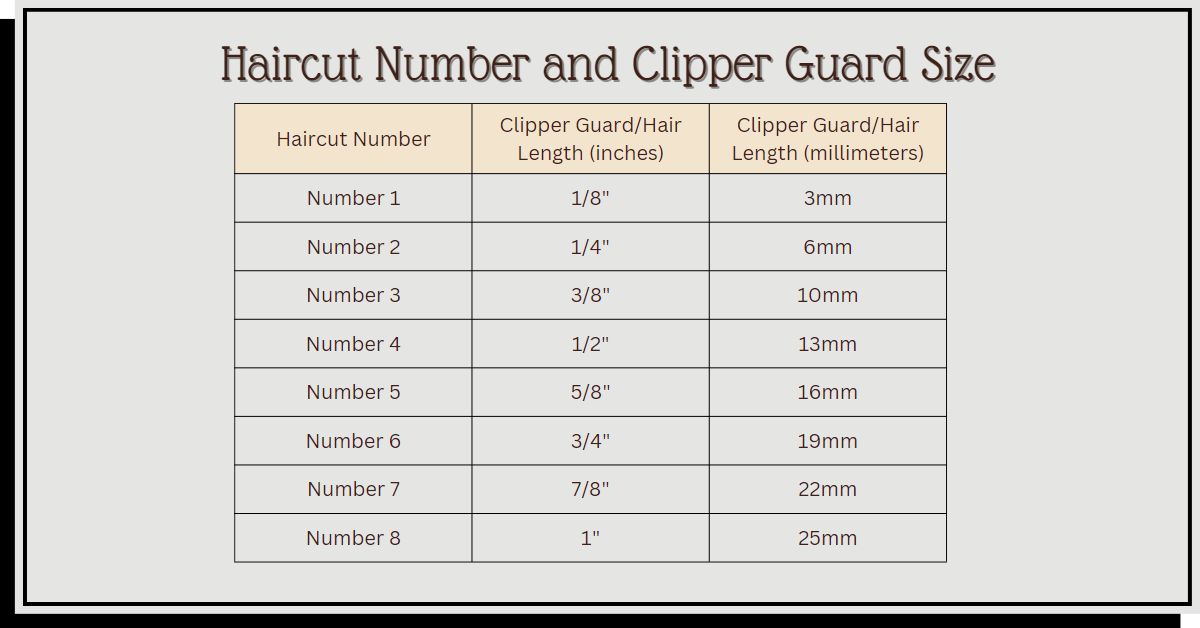
Some clippers may also come with half clipper sizes. Or, in some cases, a barber may buy half sizes separately. Barbers and hairdressers use these when somebody wants a length of hair that can’t be achieved with a standard clipper size.
0.5 and 1.5 guards are among the most common, resulting in lengths of 1/16″ (1.5mm) and 3/16″ (4.5mm), respectively.
Differences Across Clipper Brands
It’s also worth noting that clipper sizes aren’t always standard. Some brands may use their own guard sizes and numbering systems. For example, Oster brand clipper guards don’t correspond to the standard numbering.
Most brands trusted by barbers (including Wahlm, Kiepe, Gamma, Stylecraft, and Andi) do use standard sizing. But these disparities can sometimes complicate things for haircutting professionals and their clients.
One way to avoid confusion is to tell your barber or stylist the length of cut you’d like in inches or millimeters.
For instance, let’s say you want a standard number 2 haircut. You might specify to your barber that you want your hair cut to 1/4″ (6mm). This way, even if your barber uses a brand of clipper that doesn’t follow standard sizing, you’ll still get the haircut that you want.
You can also ask your barber whether their clipper guards follow standard sizing.
In some cases, barbers also carry clipper guard sizes beyond the “standard” 1-8. A number 10 guard, for example, may leave hair 1.25″ long (or 32mm) which is great for crew cuts.
If you want your hair kept longer than an inch, you can ask your barber if they carry number 9, 10, or even 12 clipper guards. If not, any experienced barber can perform a scissor cut (or combination scissor/buzz cut) to achieve your desired look. Finger tight for most barbers is between a 6 and an 8 guard depending on the size of the fingers.
Quick Reference Guide for Haircut Numbers and Hair Clipper Sizes
Not sure which haircut is right for you? Check out the most common haircut numbers and photos below. I’ll also share some of their key benefits and considerations.
Number 0 Haircut
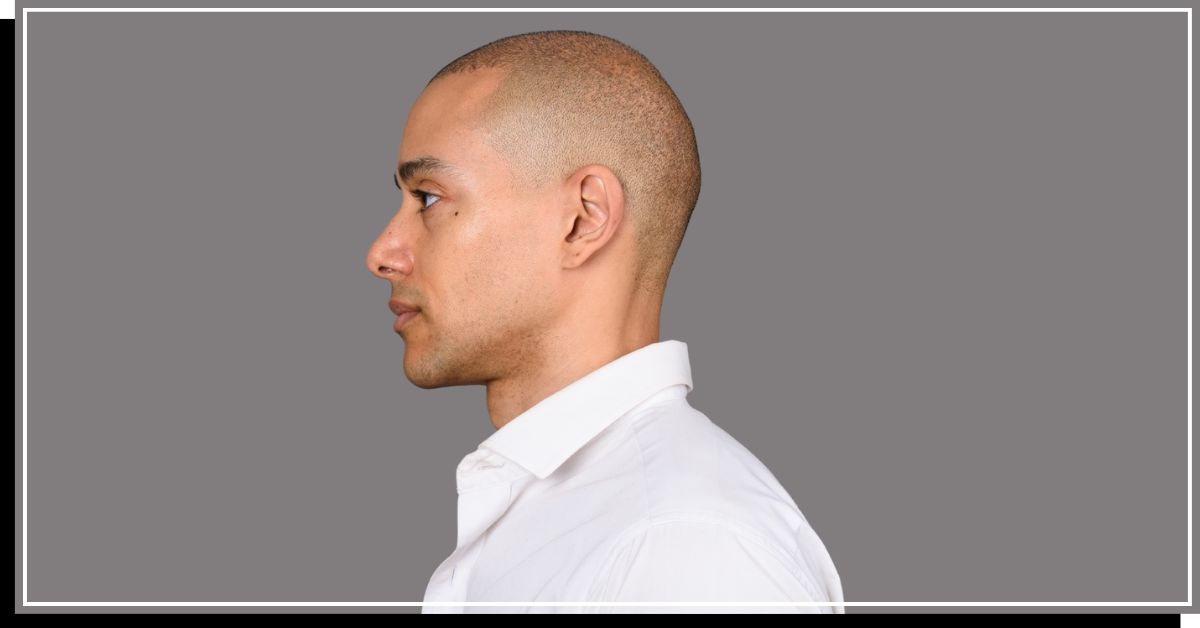
Also known as zero fade, a number 0 haircut means removing the guard from the clipper and buzzing your hair off. This haircut is ideal if you like your hair short and want to avoid daily maintenance and styling.
According to Jon, they call this double zero or mostly a bald fade taken down to the skin using an electric shaver.
Keep in mind that this haircut will expose your scalp! It may not be ideal if you feel self-conscious about that for any reason.
Number 1 Haircut: One-eight of an inch
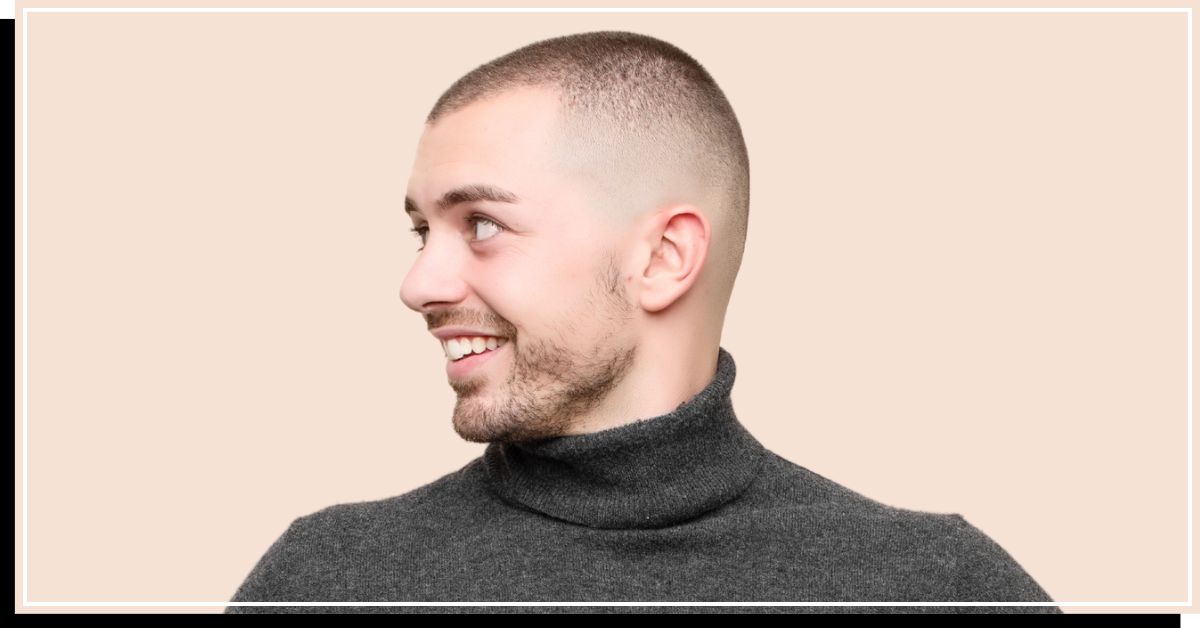
Do you like the idea of having very short hair, but aren’t quite ready to buzz it all off? Then a number 1 haircut may be a good compromise.
With this cut, you’ll still have about an eighth of an inch of length remaining. This haircut is also very likely to expose your scalp unless you have very thick hair.
Number 2 Haircut: One-quarter of an inch
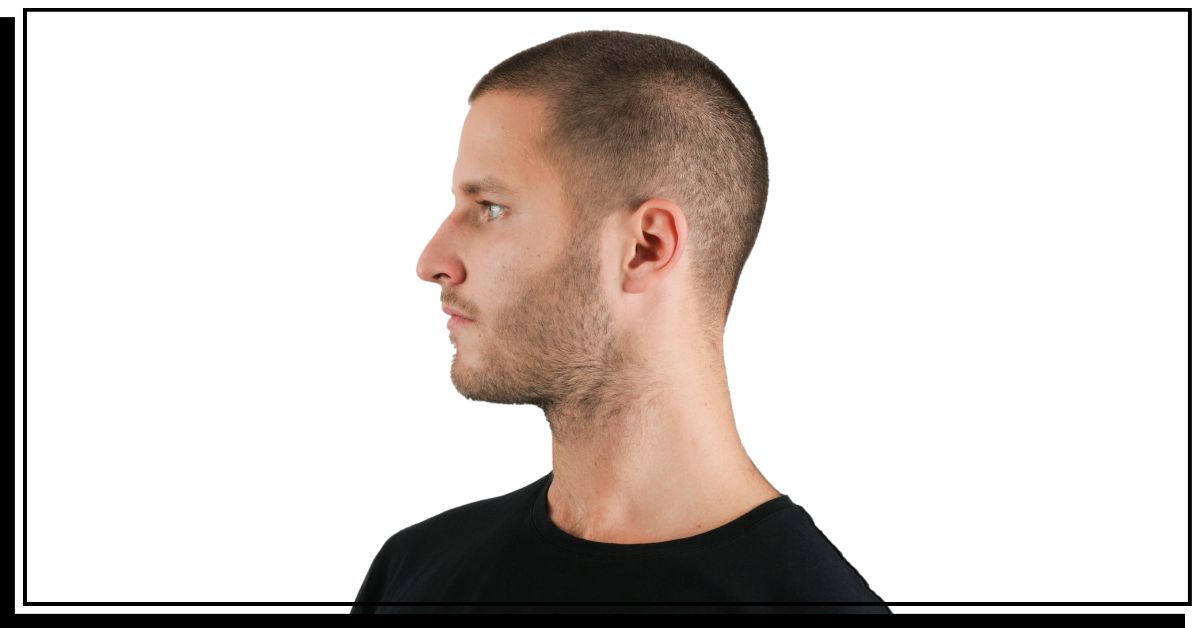
Want to go longer still? A number 2 haircut is a great choice if you want minimal maintenance and decent scalp coverage. If you have thinning hair or finer hair, a number 2 cut can be a great option to keep your hair looking full.
It’s also a popular choice for fade cuts because it’s easy to blend and taper. Have you been toying with the idea of a buzz cut, but are nervous about going too short? Then a number 2 cut will be a great starting point.
Number 3 Haircut: Three-eights of an inch
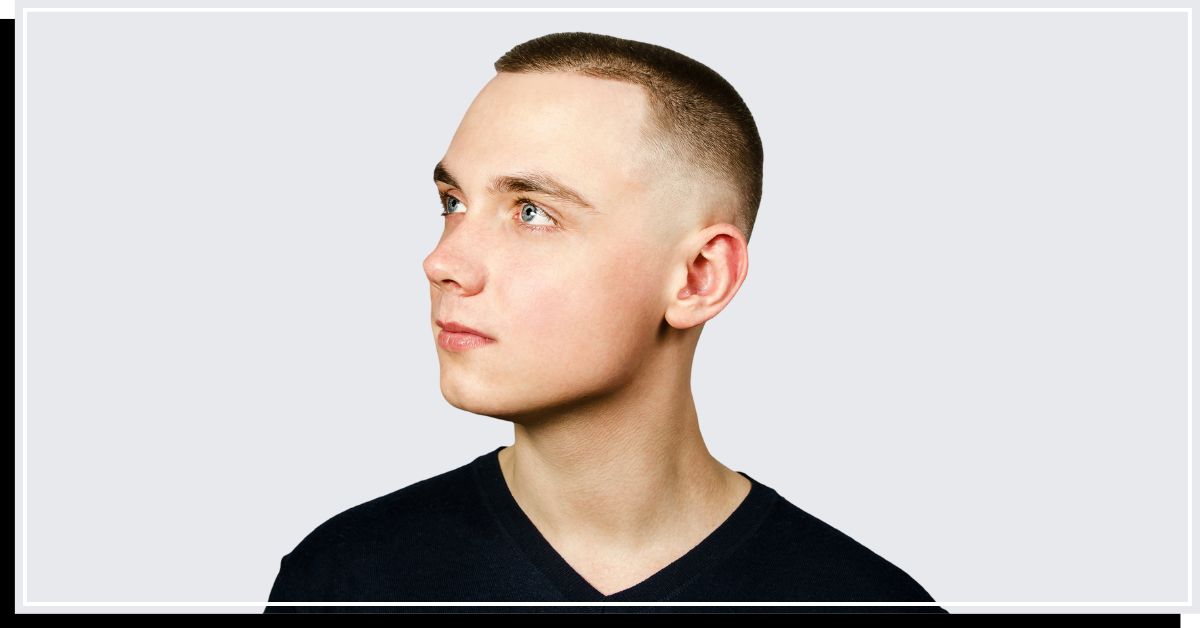
A number 3 haircut is very versatile. With this cut, you’ll leave 3/8″ (or 10mm) of hair, which is usually a “sweet spot” for both thin/fine and thick/coarse hair.
This length is still short enough that it won’t need much maintenance or styling. But it’s also long for fades and tapering.
Number 4 Haircut: Half an inch
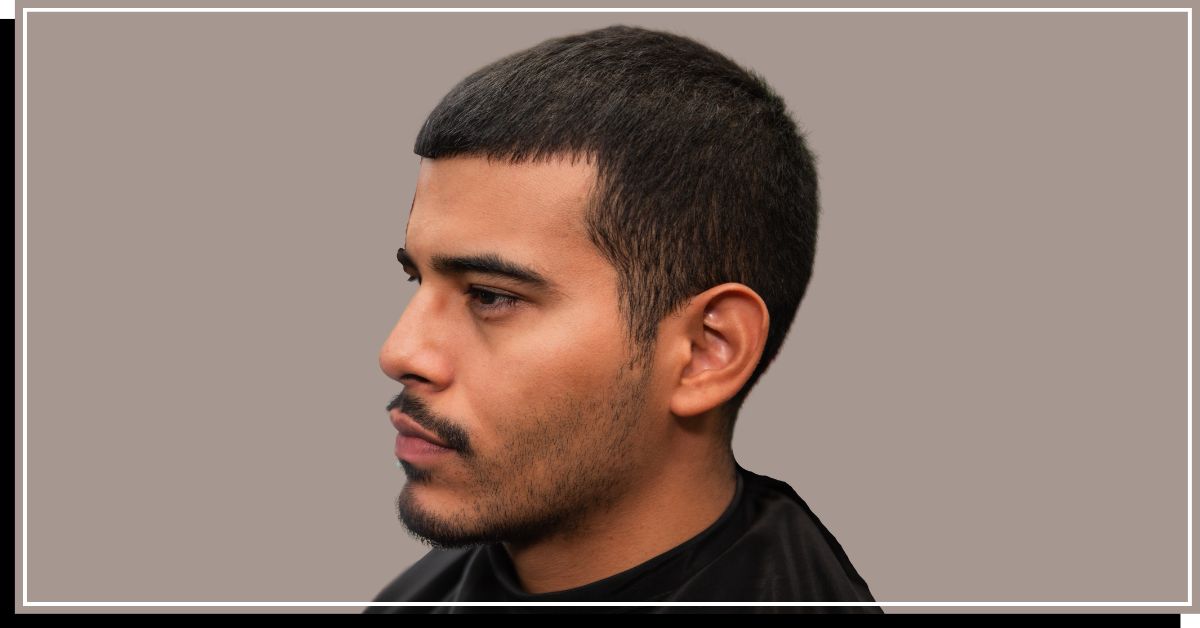
Using number 4 clippers will result in less of a buzz cut and more of a brush or crew cut. It’ll leave your hair 1/2″ (or 12.7mm) long, which is just long enough to comb and style.
Are you looking for a mid-length, low-maintenance haircut that provides decent scalp coverage? Then a number 4 haircut might be perfect for you.
Number 5 Haircut: Five-eights of an inch
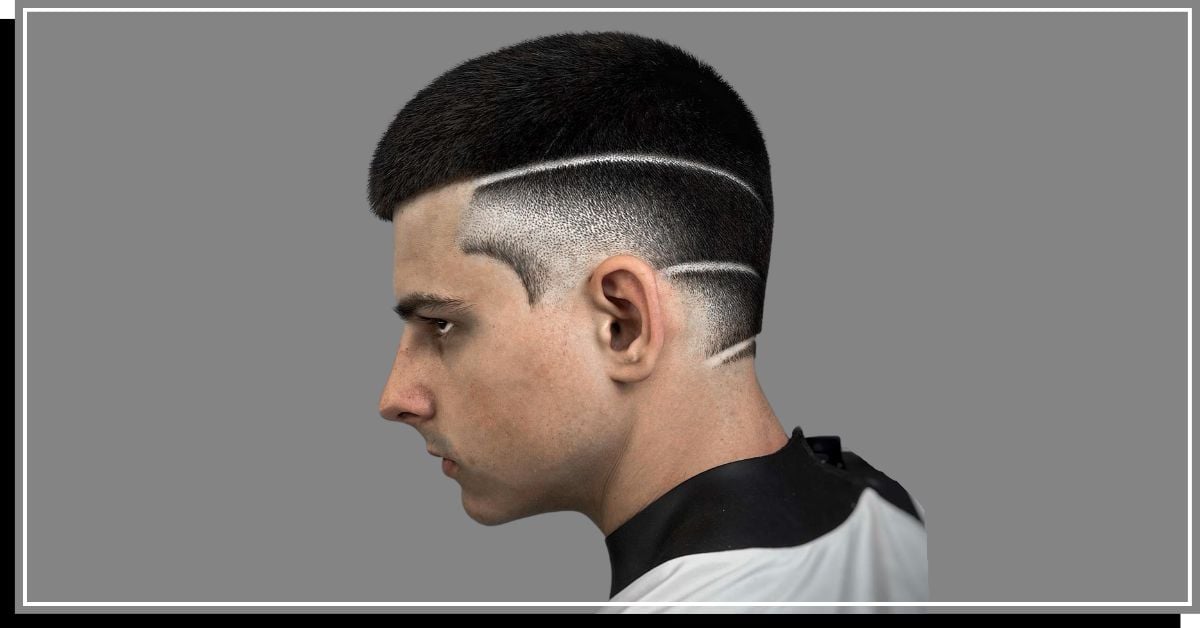
If you want a little creative freedom with daily styling, a number 5 haircut is a great choice. This cut will still leave 5/8″ (or 16mm) of hair, which is long enough to style as you desire. But you can also wear it natural and look good, too.
This length is also great if you want tapering in the sides, but aren’t looking for a skin fade. A number 2 on the sides faded up to a number 5 on top should achieve this effect.
Number 6 Haircut: Three-quarters of an inch
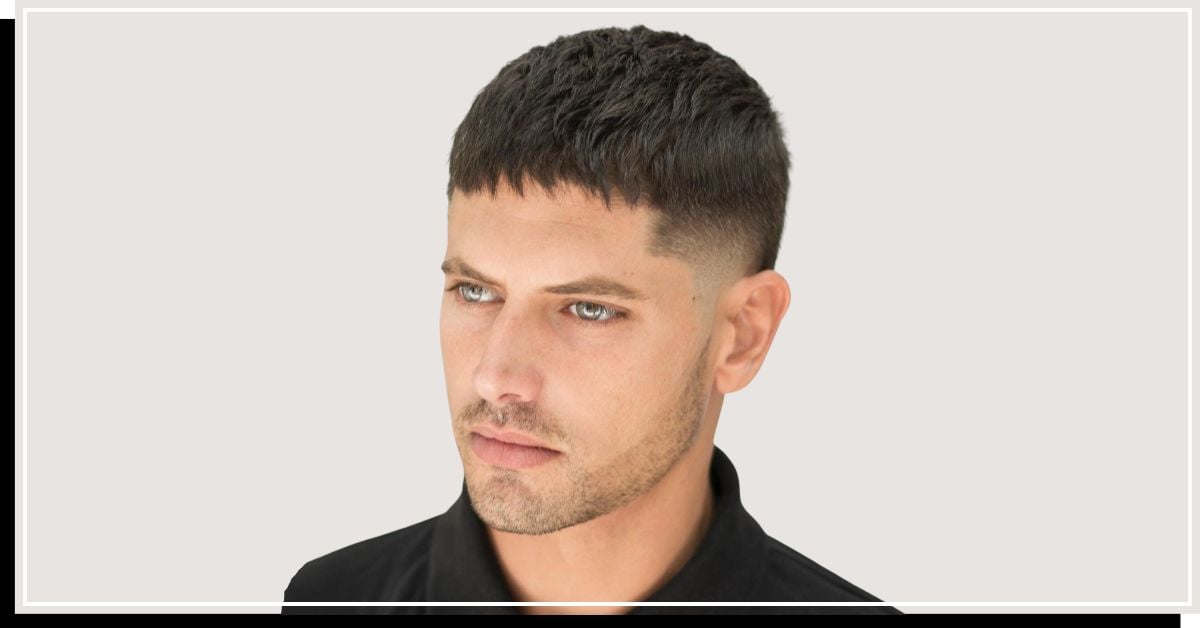
Looking for something that’s less of a buzz cut and more of a classic crew cut? A number 6 clipper guard should fit the bill.
This haircut leaves 3/4″ (or 19mm) of hair, which is plenty to brush and style. This clipper number is also popular for clients who want their hair to taper at the sides.
A longer cut like the number 6 haircut is often recommended if you have thinning or finer hair. It’s a good length for creating the appearance of a fuller head of hair.
Number 7 Haircut: Seven-eights of an inch
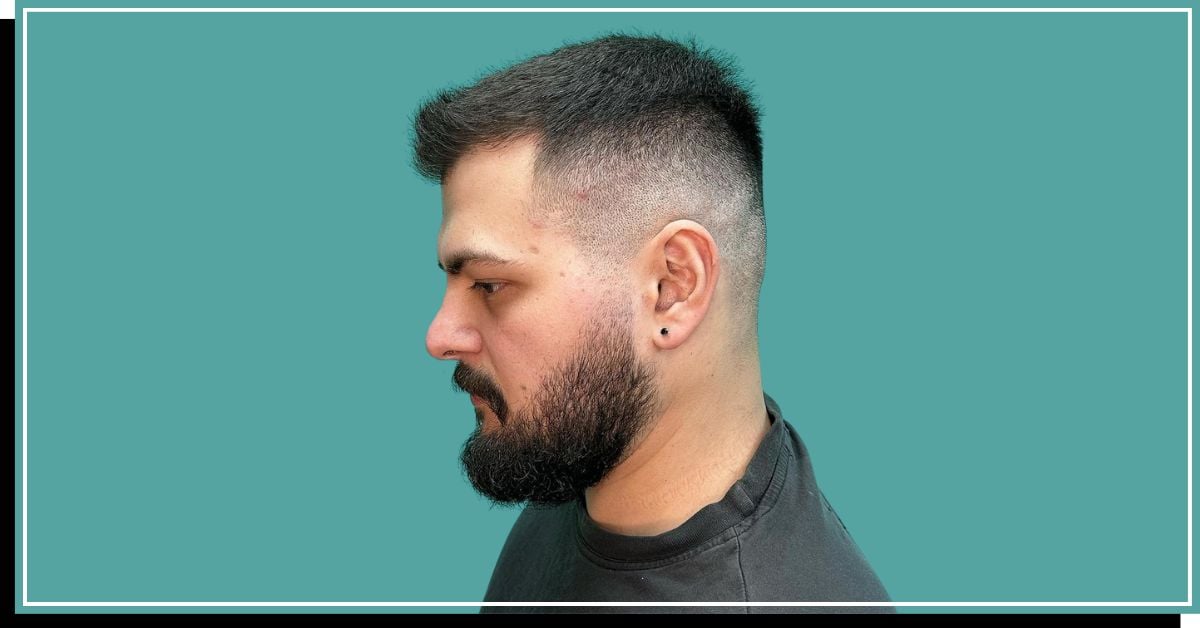
Another popular crew cut option is the number 7 haircut, which leaves 7/8″ (or 22mm) of length. With this length, you can still style your hair and enjoy full scalp coverage.
This is an ideal haircut if you want to be able to style daily, but also want to avoid frequent trims. It’s great for faux hawks and other common styles. If you ask for tapering in the sides, this cut will last even longer.
Number 8 Haircut: An inch
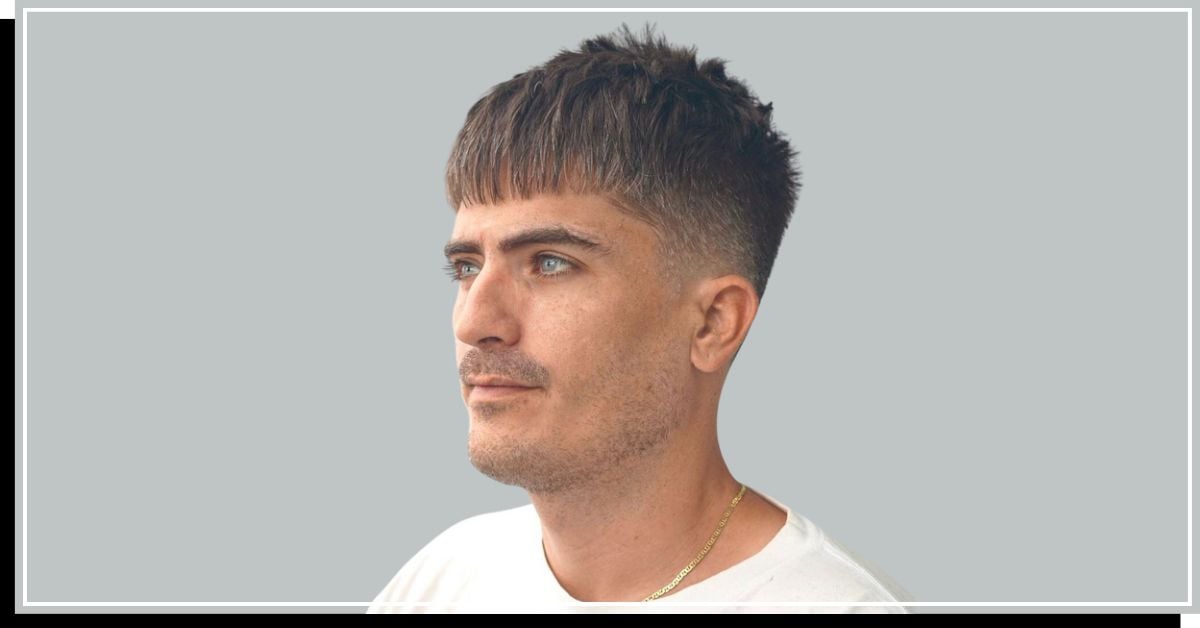
If you prefer to keep a lot of length without needing a scissor-cut, then a number 8 haircut may be best for you. With this haircut, you’ll keep an inch of length.
That’s plenty for you to style with hair products and get creative. You might also consider fading the sides to give your hair a little more definition and contrast.
Hair Type Considerations
As you decide which haircut number may be right for you, there are some other considerations to keep in mind.
For example, different lengths will also look different depending on your hair type. Whether you have fine and straight hair or thick and curly hair, knowing what you’re working with will help you select the best haircut for you.
“Most barbers will advise on having the sides shorter than the top. For example if you wanted a 4 on top most might suggest a 2 on the back and sides. A single number all over can grow out a bit fuzzy,” Jon added.
Fine Hair
If you have finer hair, you’ll want to be careful about cutting off too much. In general, it’s best to choose a haircut number that’s a little longer than what you have in mind.
From there, you can always ask your barber or stylist to trim a little more off if needed. Cuts often look shorter and sparser on those with finer hair—so it’s better to be safe rather than sorry!
Thick or Coarse Hair
If your hair is on the thicker side, then you might have the opposite “problem.” With thicker hair, you might actually need to have your hair cut a bit shorter to achieve the look you want.
That’s because thicker or coarser hair tends to look fuller and longer.
To be safe, you can always ask for the haircut number that you have in mind. If it looks too long for your liking, your barber can always trim it a little shorter.
Curly Hair
The most important thing to keep in mind with curly hair is that it looks very different when wet versus dry. When curly hair is saturated with water, it appears longer.
As it dries, the curls tend to tighten up, so the hair appears shorter. The tighter your curls are, the shorter your hair will appear as it dries.
Because of this, it’s generally best to go with a longer haircut when you have curly hair. Your barber can always trim more hair off as needed if it’s not short enough for your liking.
For the best results, you might also want to work with someone who specializes in curly hair.
How to Ask Your Barber or Stylist for the Perfect Haircut
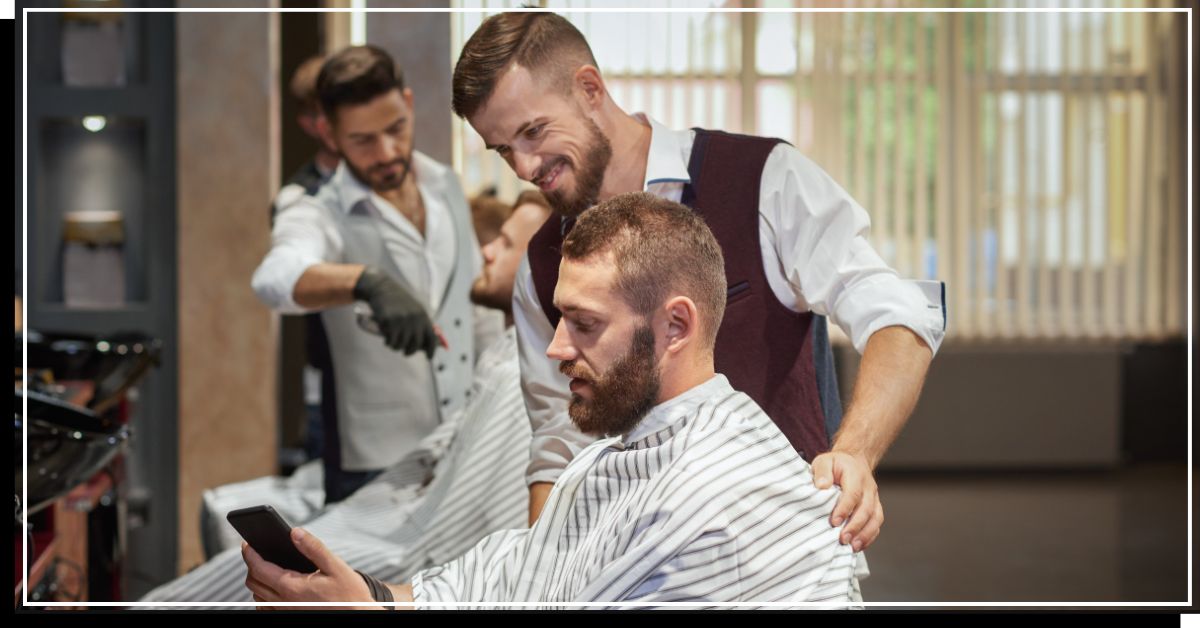
All in all, getting the perfect haircut means communicating with your stylist or barber. Even the most experienced professional can’t read minds! This is why it’s so important to arrive at your appointment prepared.
This means being ready to explain what you have in mind, what you want, and what you don’t want.
You may also want to speak with your barber about your current hair routine. Do you wash daily? What products do you use and how much time do you have to set aside for daily styling?
With this information, your barber or stylist can give you the absolute best haircut for you.
Know Your Number or Explain You Don’t
Do you know you’ve been happy with a specific haircut number in the past? Then there’s nothing wrong with telling your barber that number!
But I understand if you’re nervous about potential confusion with clipper guard sizes. Feel free to specify the exact length that you’d like your hair cut to.
For example, if you know you want a number 4 haircut, tell your barber that you’d like your hair cut to half an inch (or 13mm). They may have a few follow-up questions about your sideburns and neckline. But overall, this is a great way to skip the 20 questions game and get a great haircut.
If you don’t want your hair cut to the same length all around, you’ll need to communicate this with your barber as well.
Fade haircuts are popular and involve the use of tapering the length of the hair. Usually, this means hair that’s longer on the top and then shaved shorter as it “fades” into your neckline. If you want a fade haircut, you’ll need to discuss how long you want your hair on top, on the sides, and around the back.
If you don’t know the haircut number that you want (or are still getting familiar with the idea of haircut numbers), don’t stress. There’s nothing wrong with communicating this to your barber.
As professionals, we understand that not everybody knows all the technical hair jargon. Any experienced barber or stylist will have a casual conversation with you to figure out your desired result. And we have no qualms discussing this without the need for technical terms.
A Picture’s Worth a Thousand Words
It can also be helpful to bring in some photos of what you’d like your haircut to look like when all’s said and done. This is so useful if you’re still not feeling confident discussing haircut numbers.
There are plenty of places online where you can browse haircut ideas, like Instagram. If you see a cut that you like, take a screenshot or save the image directly to your phone. From there, you can bring it up to show your barber at your appointment.
I asked Jon if this is common in his barbershop. He told me, “Yes of course, visual aids are the best way to show what it is that you want. The barber can then advise you on how short to go and then advise on the grades to use. If you make a note of what he/she said then it will be easier to explain on the next visit.”
Have you been very happy with a haircut you’ve had in the past and have pictures of yourself from that time? Feel free to show these to your barber as well.
And don’t worry about remembering what haircut number you had! An experienced, knowledgeable barber will be able to estimate from your pictures.
But it’s important to remember the exact same haircut can look very different on you versus someone else. Factors such as hair type, hair color, and face shape all play a role.
The products used to style your hair after it’s cut can also have a huge impact on its final appearance, too. Your barber or stylist will have product recommendations to help you create any look.
For styling medium to longer hair, Fiber by American Crew is a popular choice among barbers. This product delivers strong hold and minimal shine. But it also eliminates frizz and moisturizes your hair. It’s super easy to work with and can add texture to finer hair, which creates the appearance of fullness.
Franklyn also suggests using structuring products like sea salt spray and volume spray. These need drying and then you can add clay, paste, mud, or styling powder. Styling powders have been a firm favorite with many barbers now.
Another popular choice among barbers and stylists is Fresh Falls Shampoo and Conditioner by Dr. Squatch. These products contain ingredients to soothe your scalp and keep hair looking healthy. And they do so without the use of harsh chemicals or synthetics– plus they smell awesome.
Frequently Asked Questions
What is a zero fade?
A zero fade is a taper-style cut where the hair gets progressively shorter towards the ears and neck. “Zero” is one of the shortest haircut numbers you can get. It’s basically shaved down to your skin, then gets a bit longer towards the top of your head.
A zero fade is done with clippers and they can be taken shorter using trimmers and electric shavers (Foilers or foils).
How short is a number 3 haircut?
A number 3 haircut will cut hair to a length of 3/8″ or 10mm. This cut is relatively short and generally will not allow for any styling. It’s a great choice if you’re looking for a low-maintenance cut.
What does 8 on the sides look like?
A number 8 on the sides will result in the sides being cut to one inch (or 25mm). This length is usually long enough that you can’t see your skin through it. It’s also long enough to comb and style with product.
How do I give myself a number 4 haircut?
To give yourself a number 4 haircut, you’ll need a number 4 guard for your clippers. Attach the guard, turn your clippers on, and start moving them across your head. If your hair is longer than 2 inches or so, you’ll want to start with a longer guard and work down to a number 4. Otherwise, you risk the clippers getting tangled in your hair.
Are haircut numbers universal?
For the most part, haircut numbers are universal across brands. But there are a few hair clipper brands (including Oster) that use their own numbering. They don’t follow the universal system.
What haircut number should I get?
The haircut number that’s right for you depends on your hair type and desired level of upkeep. Do you want something that allows for lots of creativity with styling? Then a longer cut (like a number 8 cut) will probably be best. Do you prefer something with as little maintenance as possible? Then a buzz cut (or number 0 haircut) may be right for you.
Does shaving your head with clippers increase hair density?
No, shaving your head with clippers doesn’t make your hair grow in faster, longer, or thicker (Source). The living part of each hair below your scalp, which is what grows back, is not affected by shaving.
